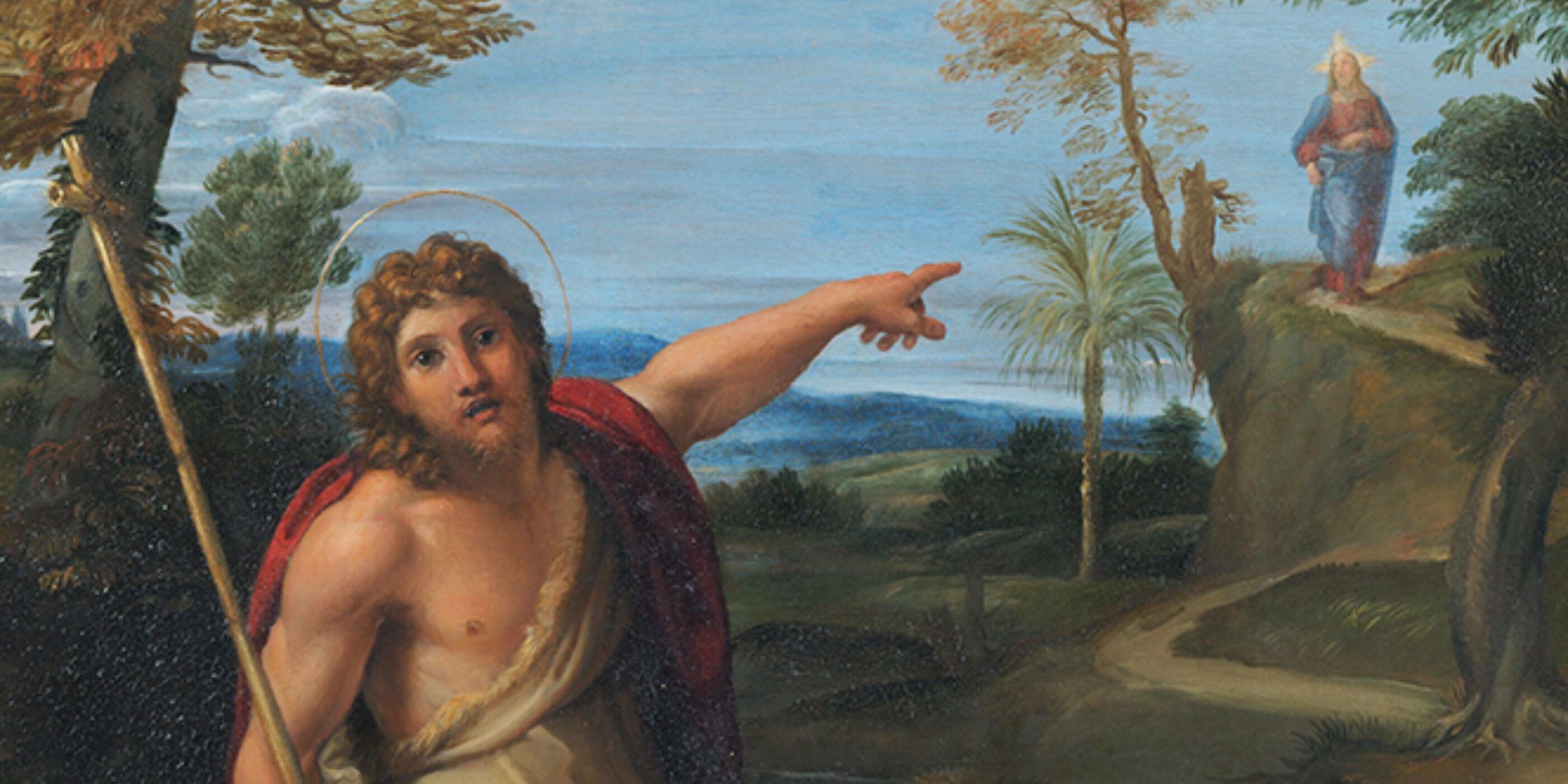By: Fr. Ryan Connors, Dean of Men
The figure of John the Baptist occupies a crucial place in the Christian imagination. Even children unfamiliar with the intricacies of Catholic theology all know of John the baptizer in camel’s hair eating wild locusts.
Each year Christmas liturgical preparation brings us to the banks of the Jordan River. Each Advent we hear the Baptist’s cry: “Prepare the way. One is coming after me. He must increase, I must decrease.” These sentiments describe the best aspirations of every Catholic. We have got to set aside all that gets in the way of our becoming a person on fire with God’s love.

John—the Advent patron—points the way. He says: Don’t look at me. Look to another, to one greater than I. The Baptist provides the pattern for the Church through the ages: we exist only to point to another—to the Lord. At every Mass you ever attend, we hear the words of John the Baptist that echo through history: Behold, the Lamb of God—Ecce Angus Dei. John the Baptist declared millennia ago, Behold Him, not me. He is the one who will redeem the world.
The preaching of John the Baptizer forms the heart of Advent meditation. John’s injunction “Repent of your sins” supplies the only adequate preparation for the Lord’s coming. Unrepentant sinners don’t recognize the need for a savior. John the Baptist did not announce niceties that conformed to cultural sensibilities. He didn’t tell people what they wanted to hear.
Instead, John the Baptist announced the truth—even truths that were uncomfortable to hear. You will recall that John was imprisoned for denouncing Herod for taking another man’s wife. It should not be lost on Christians of the twenty-first century: John the Baptist’s public preaching about marriage cost him his life.
He gave his life for Christ, not because he was ordered to deny Him, but because he was ordered to keep silent about the truth. John the Baptist was willing to speak the truth come what may. In this case, John had to tell Herod the truth that he couldn’t marry another man’s wife. Today, the Church cannot be silent about married love.
John the Baptist stands as a patron of Advent but not so much of Lent. By the time we get to Holy Week John has been beheaded. He dies a martyr for Christ and for the truth about human love. John the Baptist reminds us that suffering is part of the deal. To allow the Lord to increase in our life means we welcome too the chance to be configured to Him on His Cross. If challenge and suffering make their way into your life, never for a second be caught unaware. John the Baptist reminds us that following Jesus means the Cross is part of the package.
As early as the third century the early Church theologian Origen noted a pattern: whenever the Lord Jesus came, He was preceded in that coming by John the Baptist. In the divine plan, God’s coming—our focus in Advent—is always preceded by John the Baptist.
As a child, John the Baptist was conceived just months prior to the Lord. We recall on the feast of the Visitation that John leaped in the womb of his mother Elizabeth upon the arrival of Mary pregnant with Jesus. It was John the Baptist who declared even as a preborn child what the coming of Christ entailed. He leaps at the salvation Christ brings.
Before the Lord’s public ministry—some three decades later—the preaching of John the Baptist heralded His arrival. John preached repentance from sin and conversion of life. When Christ began his public ministry, it was John who pointed out His coming into the world. And finally, it was John who preceded the Lord in death. His martyrdom signified the coming end for Christ’s public ministry. John the Baptist points the way to Christ. Don’t’ look at me, he says, look to another, to one greater than I.
The lesson of John’s preceding Christ is that the coming of Jesus doesn’t just happen. In God’s good providence, there is a necessary preparation. And that preparation is the preaching of John—which is to say, it is the preaching of repentance and conversion of life. If we are not ready to repent of our sins, we’re not ready for Christmas.
Small wonder then, it just wouldn’t be Advent without John the Baptist.

